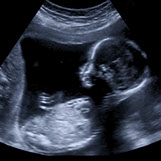Over the years, I have met many unmarried fathers who are in the difficult position of going through separation and the heartbreaking possibility of being split from their children.
These fathers have shared their stories of anguish, frustration, and the overwhelming sense of powerlessness that accompanies their situation. They speak of sleepless nights spent worrying about their children’s well-being and the relentless battle to assert their rights in a legal system that can often feel stacked against them.
If you have found yourself in this position, the best thing you can do is empower yourself with knowledge of the legal system. That’s why, in this blog, I want to discuss fathers’ rights in joint custody, dispel common misconceptions, and offer practical guidance on how to tackle this challenging time.
Understanding Joint Custody
Joint custody, also known as shared care or shared residence, involves both parents sharing the care and responsibility of their children following separation or divorce.
In Scotland, the primary consideration in custody matters is the welfare of the child. While the law does not explicitly favour one parent over the other, it emphasises the importance of maintaining meaningful relationships between children and both parents, provided it is in the child’s best interests.
Father’s Rights in Joint Custody
Despite the common misconception that mothers are automatically favoured in custody disputes, Scottish law recognises and upholds the rights of fathers in joint custody arrangements.
Ultimately, unmarried fathers have parental rights if they are registered on the child’s birth certificate within 21 days of the child’s birth.
If you are the child’s biological father, you will have parental responsibilities as long as you:
- Have signed and registered an agreement with the child’s mother (unless a court has revoked her parental responsibilities and rights).
- Were married to or in a civil partnership with the child’s mother when the child was conceived.
- Married or entered into a civil partnership with the child’s mother after your child was conceived.
- Have been registered on the birth certificate within 21 days of birth.
- Have been given parental rights by a court.
Introduced in the Family Law (Scotland) Act 2006, these legal provisions ensure fair distribution of responsibilities and rights between both parents, regardless of marital status. This reform marked a significant shift from previous practices, where unmarried fathers lacked automatic parental rights and responsibilities, even if named on the birth certificate.
Fathers have the right to be actively involved in their children’s lives and to participate in decision-making regarding their upbringing. This includes matters such as education, healthcare, and religious upbringing.
What rights do fathers have if not on the birth certificate?
Unmarried fathers who are not on the child’s birth certificate will have no parental responsibilities or rights for the child unless otherwise granted through a court or written agreement with the child’s mother.
To gain parental responsibilities and rights if you are not on the birth certificate, you will need to apply for a court order granting your request. You will not need the mother’s consent to do this.
Factors Considered by the Courts
When determining shared care arrangements, Scottish courts consider various factors to ensure the best interests of the child are met.
These factors may include:
- The child’s wishes and feelings (considered in light of their age and maturity)
- The nature and quality of the relationship between the child and each parent
- Each parent’s ability to provide a stable and supportive environment for the child
- Any history of domestic abuse or neglect
- The child’s need for continuity and stability in their living arrangements
It’s important for fathers to demonstrate their commitment to their children’s wellbeing and actively engage in the legal process to present their case effectively.
Legal Rights and Responsibilities
In joint custody arrangements, both parents have equal rights and responsibilities regarding their children.
This means fathers have the right to:
- Have input in major decisions affecting their children’s lives
- Spend meaningful time with their children on a regular basis
- Access information about their children’s education, health, and welfare
- Apply for parental rights and responsibilities if not automatically granted
It’s crucial for fathers to understand their legal rights and responsibilities to ensure they play an active role in their children’s upbringing.
Challenges Faced by Fathers
Despite legal provisions in place to protect fathers’ rights, many face challenges in securing joint custody or maintaining meaningful relationships with their children.
Common obstacles include:
- Gender bias and societal stereotypes
- Lack of awareness about legal rights and procedures
- Financial constraints in accessing legal representation
- Difficulties in co-parenting with a resistant or uncooperative ex-partner
As a family lawyer, I am dedicated to supporting fathers through these challenges and advocating for their rights in custody proceedings. My commitment is to provide you with compassionate and comprehensive legal support.
Practical Tips for Fathers
For fathers navigating joint custody arrangements, here are some practical tips to consider
- Educate yourself about your legal rights and responsibilities as a father.
- Maintain open communication and cooperation with your co-parent for the sake of your children.
- Focus on creating a stable and nurturing environment for your children during your parenting time.
- Seek professional support, such as counselling or mediation, to address any conflicts or challenges that arise.
- Stay actively involved in your children’s lives, attending school events, medical appointments, and extracurricular activities whenever possible.
How to get support regarding child custody
At Cath Karlin Family Law, we understand how emotionally and psychologically draining it can be to battle over father parental rights. This is why we aim to have you carry out your separation in the most respectful and dignified way possible – always placing the best interests of the children first.
As with any child custody issues, it is always best to openly discuss matters directly or attempt to do so in mediation rather than involving the court. We always advise that court is only seen as a last resort.
Get in contact today for any help, guidance on rights for fathers or support with all elements of the Edinburgh divorce process.








